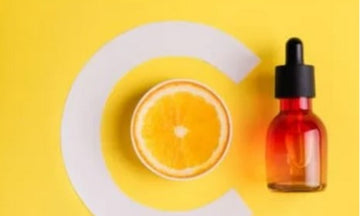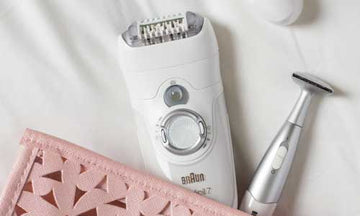This article was updated on:
Methylparaben Is A Widely-Used Skin Care Ingredients To Be Aware Of

Considering how easily products are available near us (online shopping perhaps?), it's safe to say that you are bound to come across a product or two that contains methylparaben in the list of ingredients.
Thanks to the latest research and advocates from both experts and beauty influencers, nowadays, more people are aware that anything that you put on the skin can affect your health in one way or another.
Hence the concern surrounding the ingredient, noting that methylparaben is toxic to our health. Therefore, if you ask us about the safety of methylparaben, we would say BETTER NOT. Here's why.
Content
- Is Methylparaben Natural?
- Is Methylparaben a Carcinogen?
- Is Methylparaben Harmful For Skin?
- Is Methylparaben Banned In Europe Or Any Other Countries?
- Methylparaben Side Effects
- Methylparaben Uses
- Methylparaben In Medicine
- Methylparaben Alternative - Paraben-Free
What is Methylparaben Made Of?
Is Methylparaben Natural?
Let's start from the basic; methylparaben is a type of paraben that is commonly used as a preservative (along with other' family of parabens' of butylparaben, ethylparaben, propylparaben). It prevents mold and various bacteria's growth to ensure the long shelf-life of the product, ranging from cosmetics, skincare (especially in cream-based products), household products, medicine, or even perishable food-based products.
In a way, you can say that methylparaben is also anti-bacterial and anti-fungal as well - a trait that also comes from plant-based paraben, a rare occurrence for a preservative.
While most methylparaben that we see and use are made synthetically, methylparaben do exist in nature, commonly found in plants in the form of p-hydroxybenzoic acid to protect the plant, due to the anti-fungal, anti-bacterial properties.
At the moment, as the safety of methylparaben and the effects to the health is still considered to be inconclusive (more on this below), the Environmental Working Group (EWG) lists the ingredient as a low-to-moderate hazard for the health, while the U.S. Food and Drug Administration (FDA) allows the use of the ingredient and requires them to be listed in the ingredient's list.
Is Methylparaben a Carcinogen?
The concern pretty much comes from the word 'paraben' itself, as it's known to be carcinogenic especially when exposed to it in the long run. A number of studies for years have clearly shown that methylparaben is likely to cause severe allergic reactions and creates cancerous damage to the skin.

Is Methylparaben Harmful For Skin?
Methylparaben is said to be not harmful to the skin when used at low doses. The ingredient is absorbed to the skin (or ingestion is it comes from food) and it's hydrolyzed and quickly excreted from the kidney.
Because of this, the FDA regards methylparaben as safe.
Still, while the authorities conclude that any minute quantity of the ingredient won't cause any harm to the skin, there's still some report of the serious allergy reaction to methylparaben, notably contact dermatitis with symptoms such as bumps, dry and itchy skin, as well as tenderness and burning feeling.
It is important to note that anyone with sensitive skin should steer clear of the ingredient altogether, switching to other alternatives instead, as listed below.
Indeed, researches from the Centers for Disease Control and Prevention measured parabens level in wide samples and found that both methylparaben and propylparaben are prevalent in young adults, indicating exposure of the ingredient in the population.
Still, it does not stopping the relevant authorities to take proactive measures against methylparaben just like other countries that have banned the ingredient altogether.
The real issue is, while there's no doubt that methylparaben in individual products are within limits imposed by the authorities, the concern is the exposure that's accumulated over time - or even from several products in one day - that can significantly increase the exposure and the risk to our health.
As noted by a British study conducted in 2004, a small sample if 20 women are studied, and the researches traced traces of parabens in malignant breast tumors - a clear indication that the ingredient is able to penetrate deep into the skin and signify the causal relationship between the exposure of the ingredient and causing diseases, notably cancer.
Is Methylparaben Banned In Europe Or Any Other Countries?
In 2013, The European Scientific Committee on Consumer Safety states that both methylparaben and ethylparaben are safe as long as within the maximum limit of 0.4%, while other parabens variants isopropyl paraben, isobutyl paraben, phenyl paraben, benzyl paraben, and pentylparaben - are banned for good. This in turn, causes the public to search for other alternatives compared to parabens.
Methylparaben Side Effects
One of the major concerns surrounding methylparaben is the potential for cancer, as quite a number of studies have found a strong relationship between the presence of parabens and breast cancer.
The ingredient is also noted to have a significant impact to the endocrine system (that are needed to regulate hormones in our body), notably by mimicking hormones such as estrogen (as both have similar chemical structure) that can severely disrupt overall bodily function, putting the health at heightened risk for cancer, apart from other hormones that are affected such as testosterone, ghrelin, cortisol, and adrenal.
Because of the alarming list of side effects coming from this single ingredient, this prompts a lot of us to avoid methylparaben for good, and look for better, safer alternatives instead, as listed below.

Methylparaben Uses
Likely due to the "inconclusive" findings, methylparaben is widely used in various products. As mentioned that it's not surprising that you'll be using/applying the ingredient multiple times a day. If this tempts you to make the change, there's an alternative or two of methylparaben.
Methylparaben In Medicine
Methylparaben is commonly used in medicine (at tiny doses), for it's an anti-bacterial and anti-fungal feature that will ensure the long shelf-life of the products. However, there is a growing concern of switching the ingredient with safer alternatives due to the linkage between parabens and cancer.
Methylparaben Alternative - Paraben-Free
The thing with methylparaben that has been widely used in products for decades is due to how potent the preservative was, and it's one of the inexpensive ingredients that you can use to create affordable skincare, food, medicine, and household products.
Thankfully, there are multiple alternatives to methylparaben, and done right; you can protect your health and reduce the chances of getting fatal diseases from the preservative, for good.
The key is to find other safe ingredients that have the same feature just like the paraben, which doesn't affect the health adversely at all. And one of the best alternatives to methylparaben is the use of phenoxyethanol.
The ingredient is widely used in European countries up to 1% concentration in nearly all types of products (including food and medicine). Phenoxyethanol is also happened to be inexpensive and potent against a wide range of germs and bacteria.
Sodium benzoate (or benzoic acid) is a type of organic acid is also a good alternative and studies have shown that it has same results as methylparaben, albeit used in varying concentration (for example, at 1.7% concentration in oral care products while 0.5% in leave-in products).
The ingredient is easily sourced from natural-based sources, making it appealing to use in organic-based products. Other organic acids such as salicylic acid and sorbic acid that's on the lookout as the next best alternative against methylparaben.
References:
https://www.healthline.com/health/methylparaben https://thedermreview.com/methylparaben/
https://www.byrdie.com/methylparaben-for-skin-4779820 https://www.ewg.org/skindeep/ingredients/703937-methylparaben/
https://www.byrdie.com/banned-ingredients-europe
Medical researches:
https://pubmed.ncbi.nlm.nih.gov/19101832/ https://www.cdc.gov/biomonitoring/Parabens_FactSheet.html https://www.researchgate.net/publication/327498041_Safety_and_Toxicity_Assessment_of_Parabens_in_Pharmaceutical









